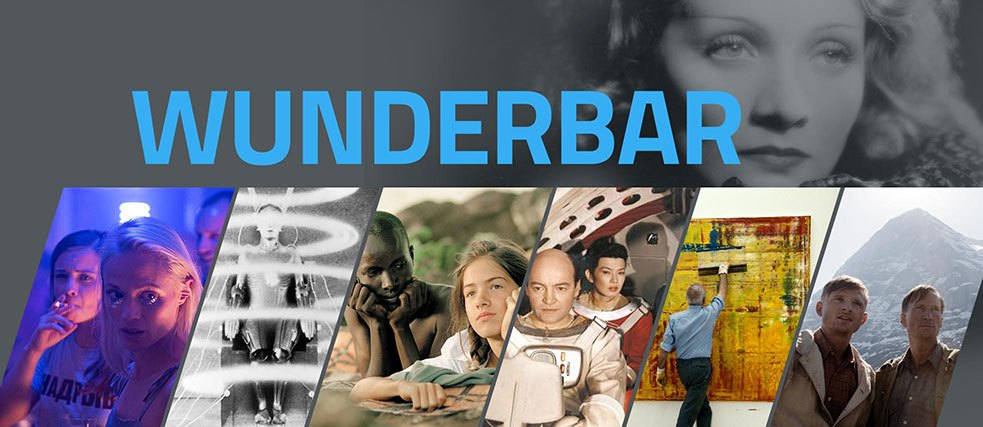As a part of a year-long project
Wunderbar: A Celebration of German Film, the Goethe-Institut Washington has selected twelve iconic films that trace the richness of German film history. Together with Landmark's West End Cinema, we present German Cinema 101, a series that guides viewers through this history, paired with expert-led discussions.
Not able to make it to the cinema? No worries! You can also stream this film and 48 films in total (see link at right).
METROPOLIS
An introduction to the film will be provided by Dr. Peter Pfeiffer, Professor of German and Director of the European Studies Certificate Program at Georgetown University. A discussion will follow the screening.
Weimar Republic (Germany), 1927, 148 min., Director: Fritz Lang, Screenplay: Thea von Harbou and Fritz Lang
A sprawling city lies at the heart of legendary director Fritz Lang’s vision of 2027: one where the wealthy cruise around in flying automobiles, languish in towering penthouses, and cavort in lush gardens far above the ground. Meanwhile, far below, the denizens of the dismal workers’ city struggle to survive every day. Unrest between the disillusioned working class and society’s elite reaches its breaking point when Freder, the son of the city’s richest and most powerful man, becomes aware of the inhumane conditions under which the working class must exist.
As he falls in love with Maria, who preaches to the workers about a better world in which the “head” and “hands” of the city live side-by-side, Freder is determined to become the “heart” that brings these two groups together. What he is not prepared for is the chaos that this mission will unleash. Will he manage to unite these two opposing forces, or will the city fall to ruin?
A silent film with a sweeping score,
Metropolis was one of the first science-fiction films in cinema. Its futuristic aesthetic continues to inspire countless filmmakers and artists, as do its powerful messages about the importance of mutual respect and understanding among people.
Fritz Lang is perhaps one of the most well-known German names among film enthusiasts across the world. Born in Vienna, Lang grew up in Austria and fought for the Austro-Hungarian Empire in World War I. His ensuing recovery from multiple injuries and struggle with PTSD led to him spending a great deal of time sketching out plots for films he would later write and direct. In his early career, Lang worked at the German film studio UFA and later at Nero-Film, contributing a number of Expressionist films to the growing artistic movement.
In 1920, he met Thea von Harbou, a writer who would become Lang’s wife and creative partner for over a decade. Harbou wrote the novel upon which
Metropolis was based, as well as the screenplay. His 1931 film,
M, was his first sound film, and its disturbing subject matter and portrayal of criminal investigation proceedings indelibly influenced the thriller genre. When the Nazis rose to power, propaganda minister Joseph Goebbels asked Lang to be the head of UFA Studios. However, Lang ardently opposed the Nazis, and in 1933 he fled to Paris and later the United States – his wife, who was a member of the Nazi Party, remained in Germay and the couple divorced. In Hollywood, Lang enjoyed a long career before slowly going blind and consequently retiring. In 1976, he passed away in Beverly Hills.
Buy Tickets
Are you currently enrolled in a German course at the Goethe-Institut Washington? If so, pick up your free ticket from the front desk today!
This event is part of the
German Cinema 101 film series. German Cinema 101 is part of the project
Wunderbar: A Celebration of German Film. From
Beloved Sisters to
A Coffee in Berlin and
Young Goethe in Love, from
The Blue Angel to
The Cabinet of Dr. Caligari — we are celebrating German-American friendship with our partner Kanopy by bringing 48 German films to your screens. Goethe-Instituts and Goethe Pop-Ups across the U.S. will take part in the celebration by showing films, organizing film festivals, and inviting German filmmakers to speak.

Back